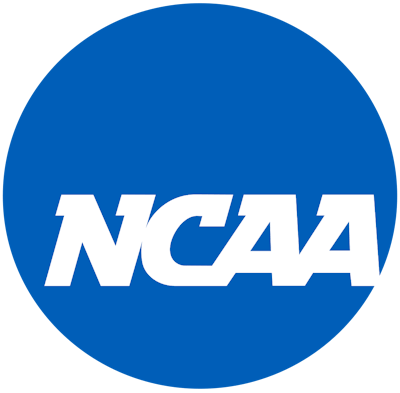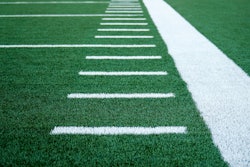
The Division I Council on Wednesday unanimously adopted a proposal to address student-athlete protections related to name, image and likeness effective Aug. 1.
"The action taken by the council today, including the creation of standardized contract recommendations and voluntary registration of service providers, will give student-athletes more confidence as they seek NIL opportunities," said Morgyn Wynne, vice chair of the Division I Student-Athlete Advisory Committee and former softball student-athlete at Oklahoma State. "Division I student-athletes in many states are already reporting the details of their NIL agreements. Disclosing that same information to schools — which would later be shared with the NCAA for the purposes of identifying trends — will offer student-athletes the benefit of better understanding about what a reasonable agreement might be for them."
The four elements of student-athlete protections are:
- Voluntary registration.
The NCAA will establish a voluntary registration process for NIL service providers (agents, financial advisors, etc.) to serve as a centralized source for providers interested in working with student-athletes. A national, centralized registration process that collects and publishes information on service providers interested in working with student-athletes will assist student-athletes with making informed decisions as they select their service providers. The details of the process will be finalized and then monitored by a to-be-determined committee to ensure it meets the needs of student-athletes.
- Disclosure requirements.
Student-athletes will be required to disclose to their schools information related to NIL agreement exceeding $600 in value, no later than 30 days after entering or signing the NIL agreement. The data will include contact information for involved parties and service providers, terms of the arrangement (services rendered, term length, compensation and payment structure), and applicable compensation between a student-athlete and service provider. Prospective student-athletes will be required to disclose the same information within 30 days of enrollment.
Data will be deidentified and provided to the NCAA (or a designee) at least twice per year. The NCAA will use that information to develop an aggregated database so student-athletes can better understand trends in NIL agreements and so the national office and member schools can make informed decisions about NIL-related policy.
Currently, more than 20 state laws require student-athletes to disclose NIL agreements. The rule adopted by the council now establishes a consistent national requirement.
- Standardized contracts.
The NCAA will work with schools to provide student-athletes with robust education on contractual obligations, including developing a template contract and recommended contract terms, to ensure student-athletes and their families make informed decisions about NIL agreements.
- Comprehensive NIL education.
The NCAA will develop a comprehensive plan to provide ongoing education and resources to support student-athletes (and those assisting student-athletes) on policies, rules and best practices pertaining to NIL. Education will be provided to other key stakeholders, as well.
Council introduces proposals for school involvement in NIL
At the recommendation of the NIL Working Group and other key stakeholders, including student-athletes, the council also introduced proposals pertaining to school involvement and recruiting in NIL activities, noting that the proposals taken together should better support student-athlete decision-making and stabilize some of the current challenges associated with NIL activities. The proposals — which could be adopted as early as April after considering membership feedback — would allow increased school support of student-athlete NIL activities and require that entities associated with a school are subject to the same standards as the school.
The proposals would also clearly define an NIL entity for purposes of NCAA rules and expressly prohibit contact between NIL entities and prospects until the prospect signs a letter of intent, participates in summer activities or practices with the team, or enrolls at the school and attends classes.
School support of NIL activities
If adopted, the proposals would remove national restrictions on the level of support provided by schools and their third-party service providers to enrolled student-athletes as they pursue NIL opportunities. Schools would not be permitted to directly compensate student-athletes for the use of their NIL but could identify potential NIL opportunities for student-athletes and even facilitate deals between student-athletes and third parties. However, student-athletes should be able to retain their own representation if they choose and must ultimately retain independent authority over any resulting terms in the NIL agreement. Further, any entity that is associated with or closely aligned with a school would be subject to the same rules as the school itself when it comes to NIL and may not directly compensate a student-athlete.
"The working group heard directly from student-athletes that removing restrictions on school involvement would benefit their experiences with NIL," said Lynda Tealer, chair of the Division I Council, chair of the working group and deputy athletics director at Florida. "These proposals would increase the amount of support a student-athlete could choose to receive from a trusted source — their own school — exponentially. Institutions provide significant assistance to student-athletes in so many areas of their college experience, and broadening what is permitted in the NIL space is something that institutions have expressed an interest in doing."
Define NIL entities
The proposals would clearly define an NIL entity as an individual, group of individuals or any other entity (for example, a collective) organized to support the athletics interest of an NCAA school or group of schools by compensating student-athletes for NIL activities on behalf of itself or another third party.
School support of NIL entities
The proposals would also eliminate regulations governing communications between schools and NIL entities regarding enrolled student-athletes but would continue to prohibit a school from directly or indirectly providing financial support or assets to NIL entities. The working group identified a need for schools and entities to be able to communicate to ensure NCAA rules are followed by both parties.
Prospects
Finally, the proposal prohibits an NIL entity from engaging in any contact, correspondence or other communication with or providing any benefits to a prospect, potential transfer or any individual associated with them, until the prospect signs a letter of intent, participates in summer activities or practices with the team, or enrolls at the school and attends classes.




































